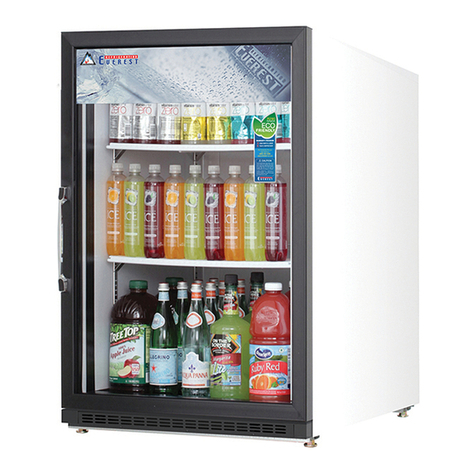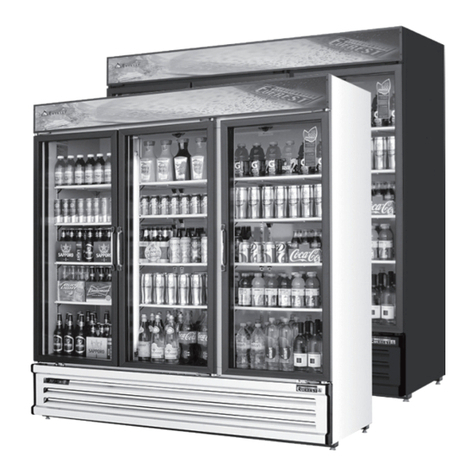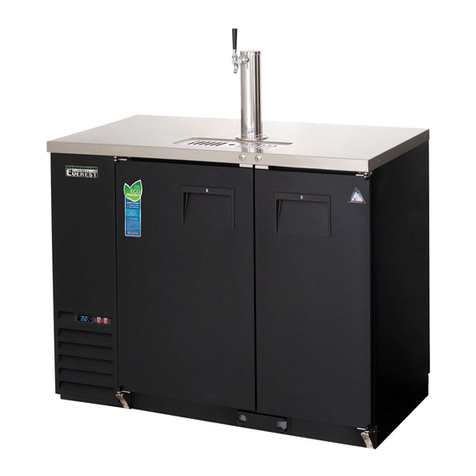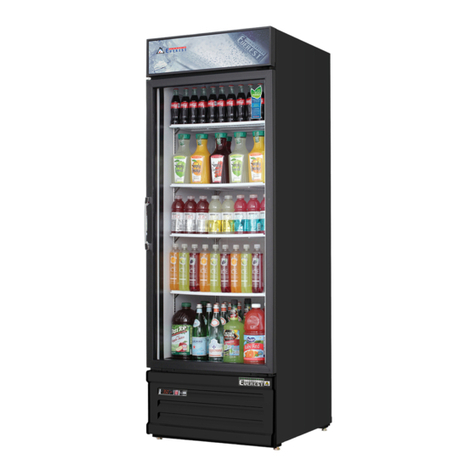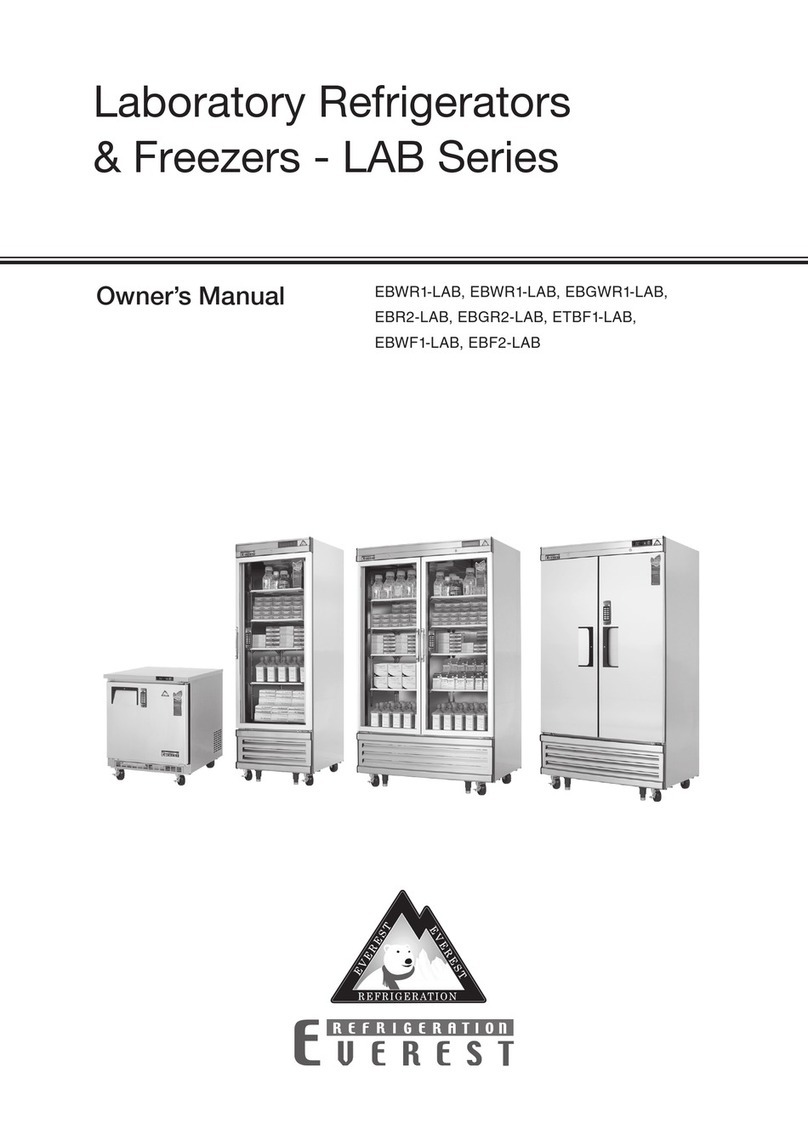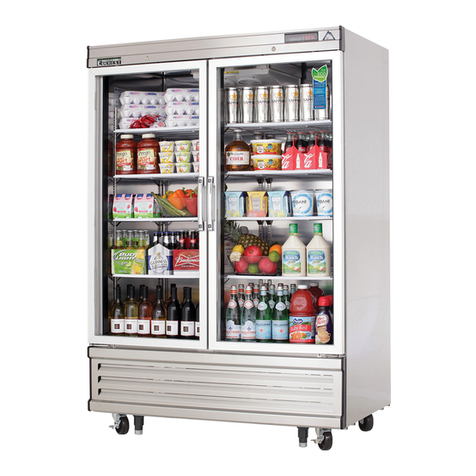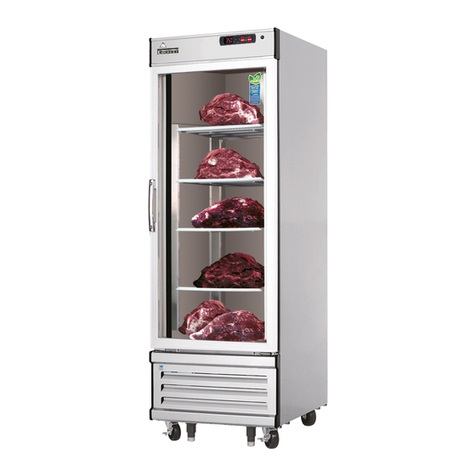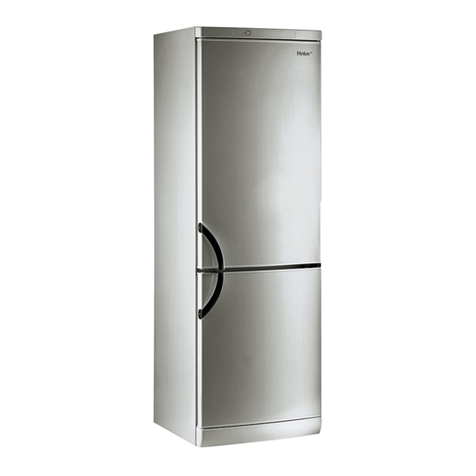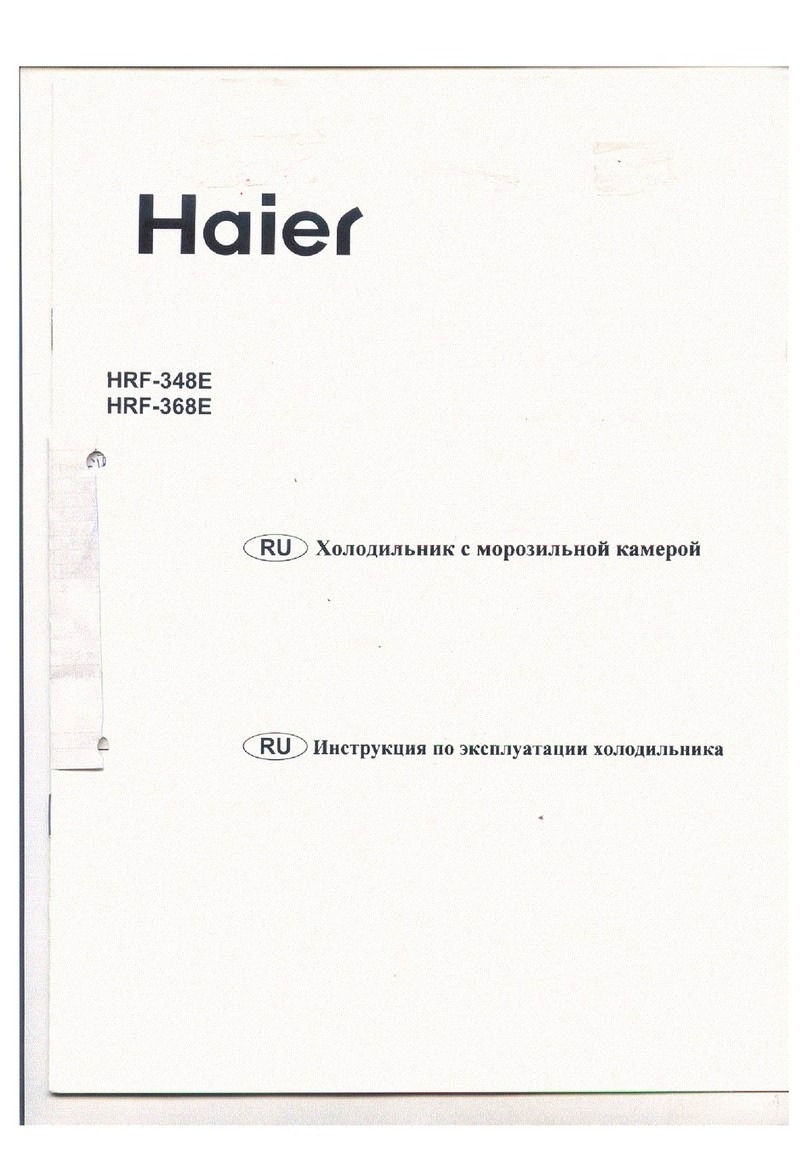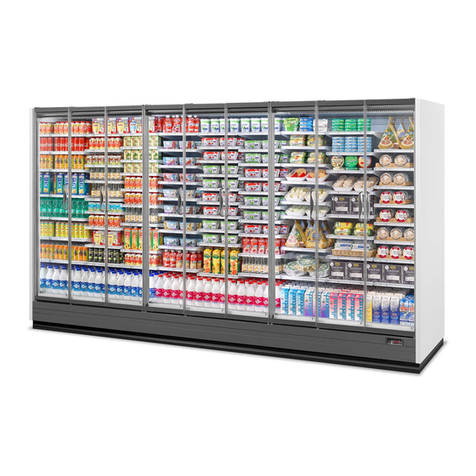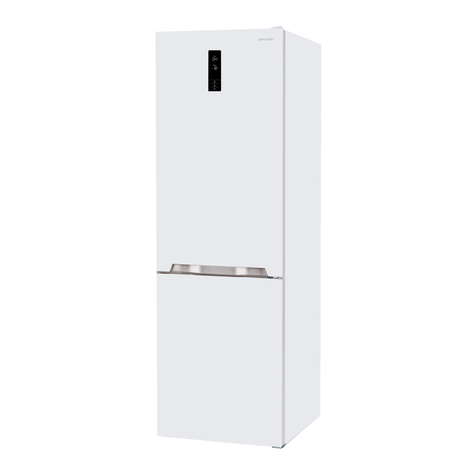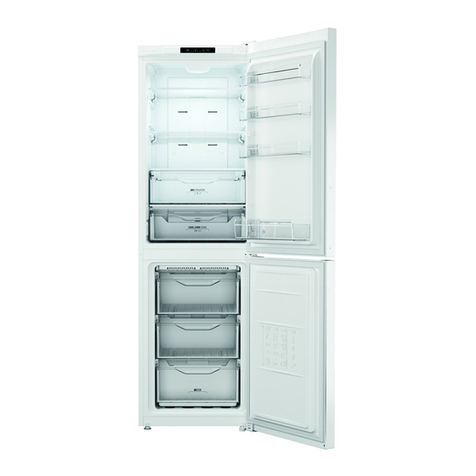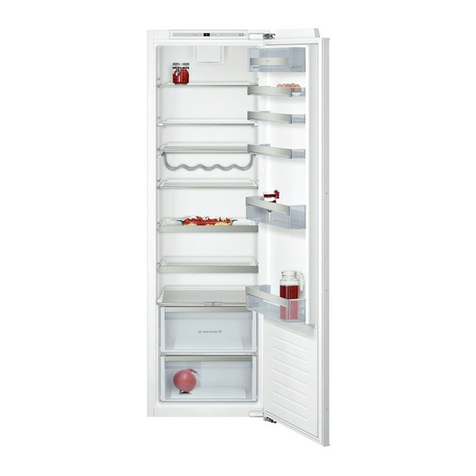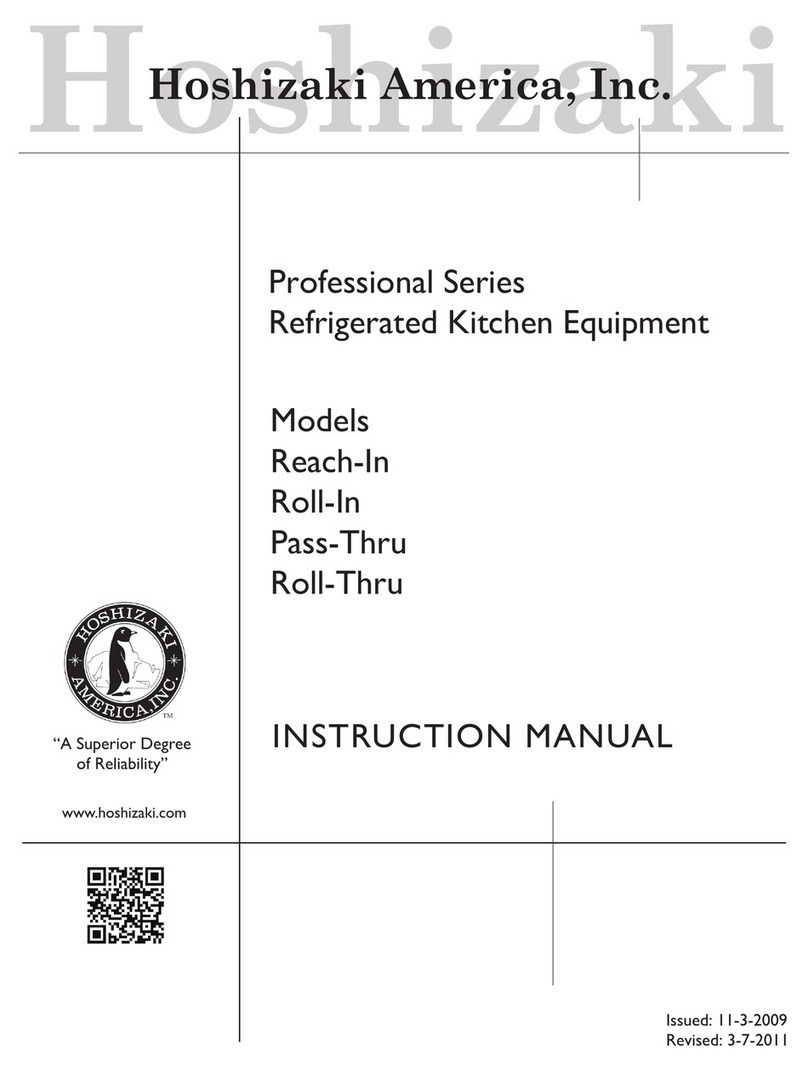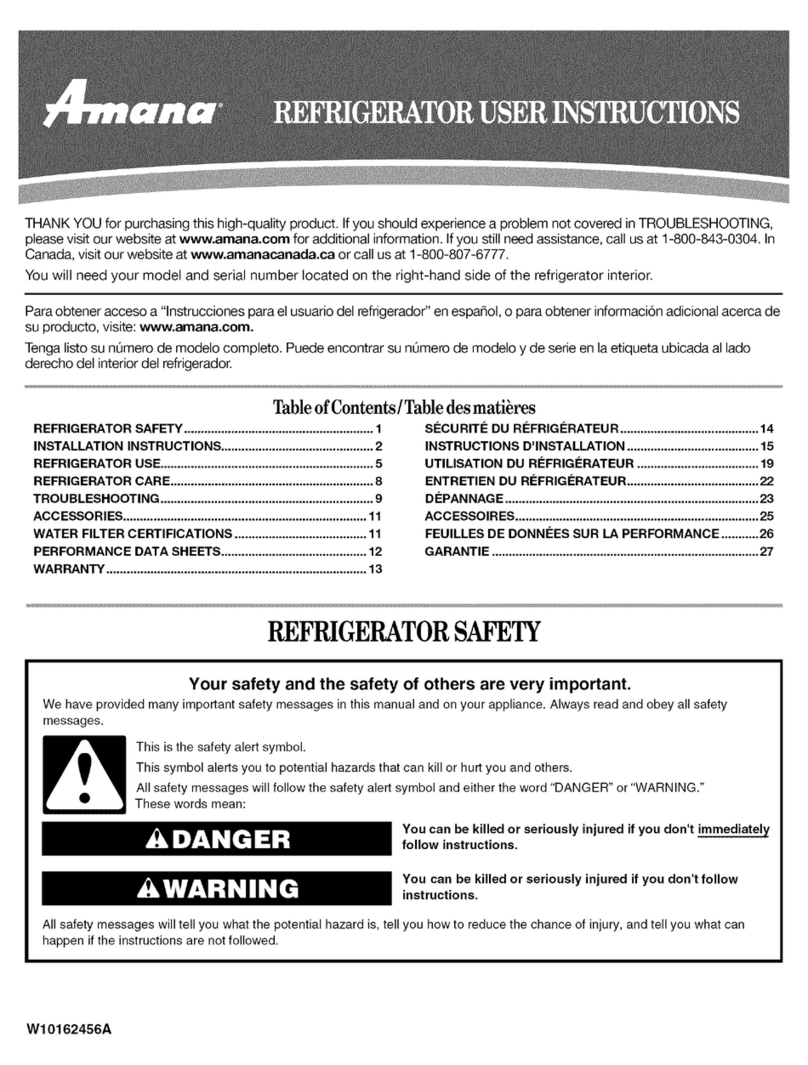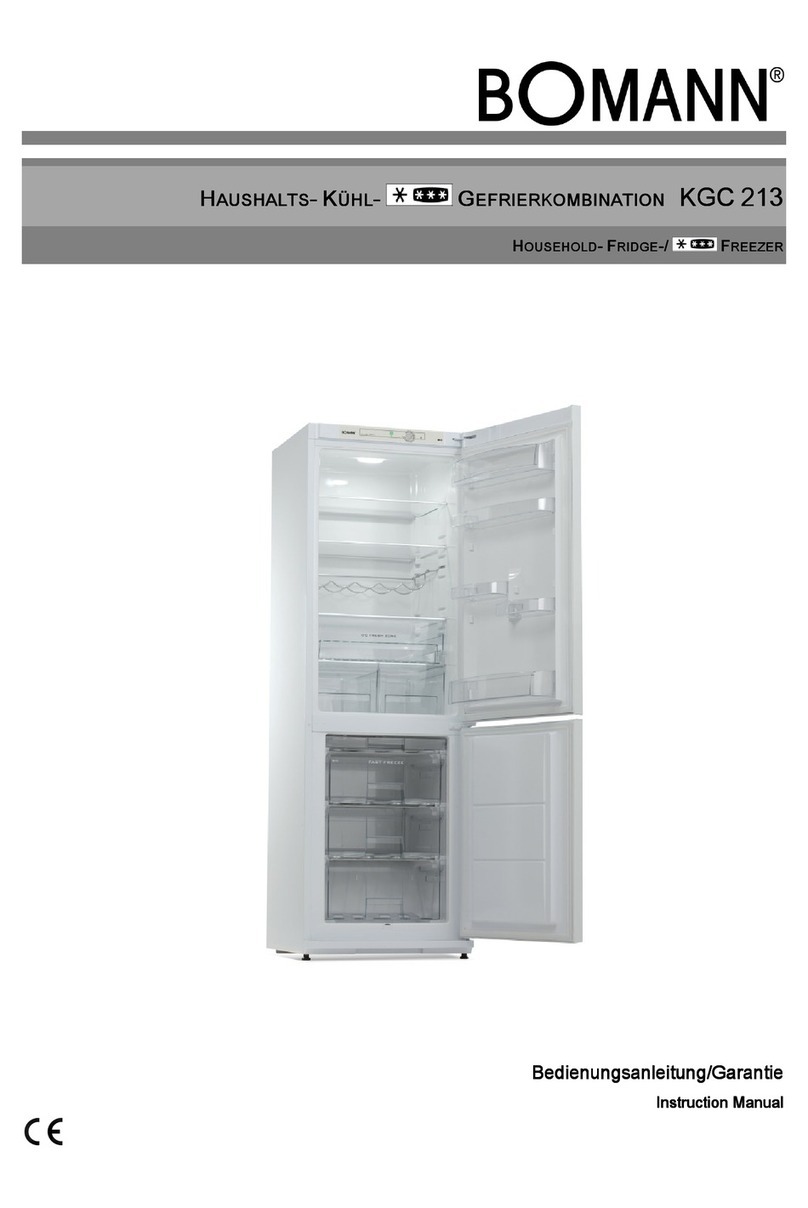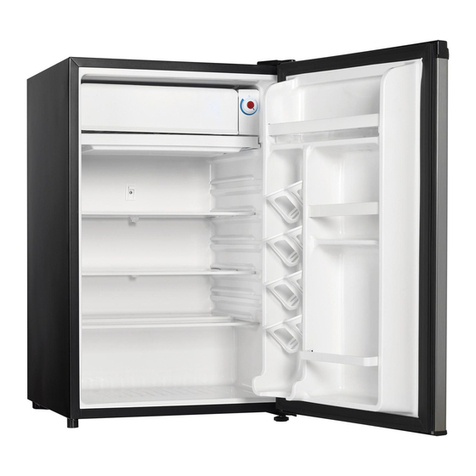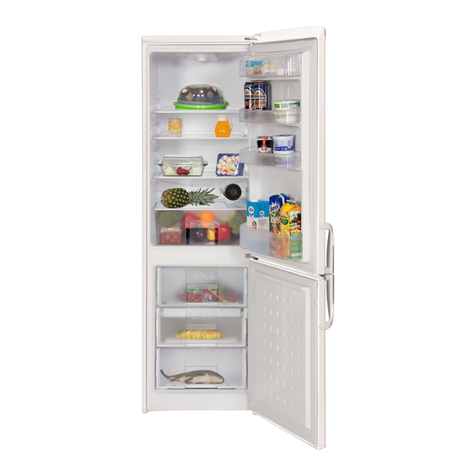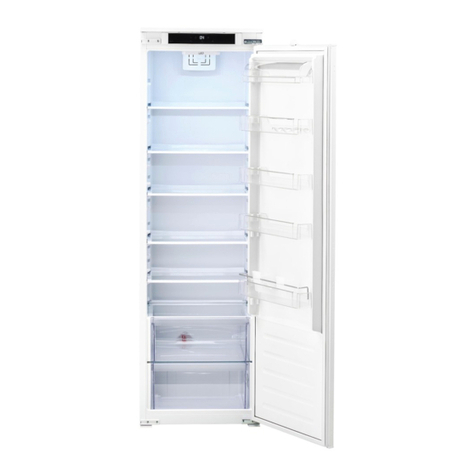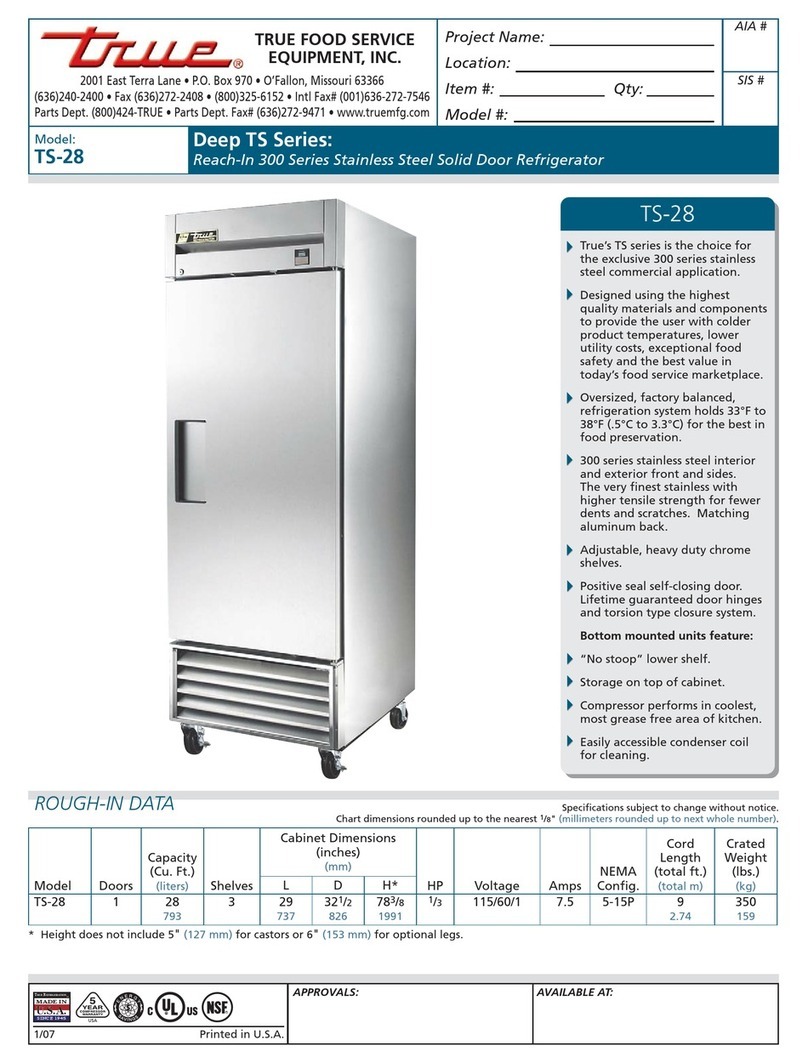
Installation Instructions
3
2. Installation Instructions
This section applies to all Everest products. Correct installation ensures proper performance and
longevity of your appliance. Professional installation by a trained refrigeration technician and
electrician is recommended. Warranty is void if the following guidelines are not met.
1. Inspect for any freight damage upon delivery
of the unit. If damage is detected, immediately
report it to an Everest representative. Everest is not
responsible for damage that occurs during shipment.
2. Keep the unit upright at all times. The compressor
contains oil, refrigerant, lubricants and various
chemicals. When tilted, these fluids may shift
and travel to sections where they don’t naturally
occur. This will lead to system contamination and
compressor failure.
3. Some units require caster installation for proper
performance. Visit our website at www.everestREF.com
and enter your product’s model number in the search
field to determine its caster requirements.
4. Do not place your hands under the top surface lip
or on the unit chassis when moving it to avoid injury
from sharp edges, protruding parts or weight impact.
5. Select a location with good air ventilation. Poor
ventilation rapidly increases ambient temperature.
High ambient temperatures exceeding 86°F (30°C)
promote excessive compressor activity in order
to maintain the desired cabinet temperature. This
will result in decreased performance, advanced
component failure and the risk of fire.
6. Position the unit so it’s front, back and right
vents as well as top pan area are away from heat-
generating equipment such as stoves, ovens, etc.
Heat sources rapidly increase the temperature of
the immediate vicinity. High temperatures exceeding
86°F (30°C) promote excessive compressor activity
in order to maintain the desired cabinet temperature.
This will result in decreased performance, advanced
component failure and the risk of fire.
7. A distance of 6” is required for back side and right
side clearance. This ensures proper ventilation and
prevents overheating which can lead to advanced
component failure and the risk of fire.
8. Select a location with a hard, leveled surface.
Use a leveling tool on the unit to ensure proper
alignment. Proper door function and condensate
removal is dependent on accurate balance. Install the
front leg stabilizers for units that come standard with
it to ensure proper door / drawer functions and unit
stability.
9. Select a location close to an electrical wall
outlet to ensure direct connection without the use of
extension cords.
10. Select a location away from severe moisture
conditions. This may compromise the unit’s electrical
components and lead to electrical shocks or the risk
of fire.
11. Select a location that will not expose the unit
to extremely dusty conditions. Environments with
high dust and debris content will significantly hasten
condenser coil and condenser coil air filter blockage
and will result in decreased performance, advanced
component failure and the risk of fire.
12. Do not build an enclosure or cabinet around
the unit. This will restrict air ventilation resulting
in elevated compressor activity, decreased
performance, advanced component failure and the
risk of fire.
13. The unit is not intended for use in food trucks.
Limited space, lack of ventilation and ambient
temperatures exceeding 86°F (30°C) typical to this
setting will result in elevated compressor activity,
decreased performance, advanced component failure
and the risk of fire.
14. The unit is intended for indoor use only. Outdoor
use will cause a decrease in performance, advanced
component failure and the risk of fire.

